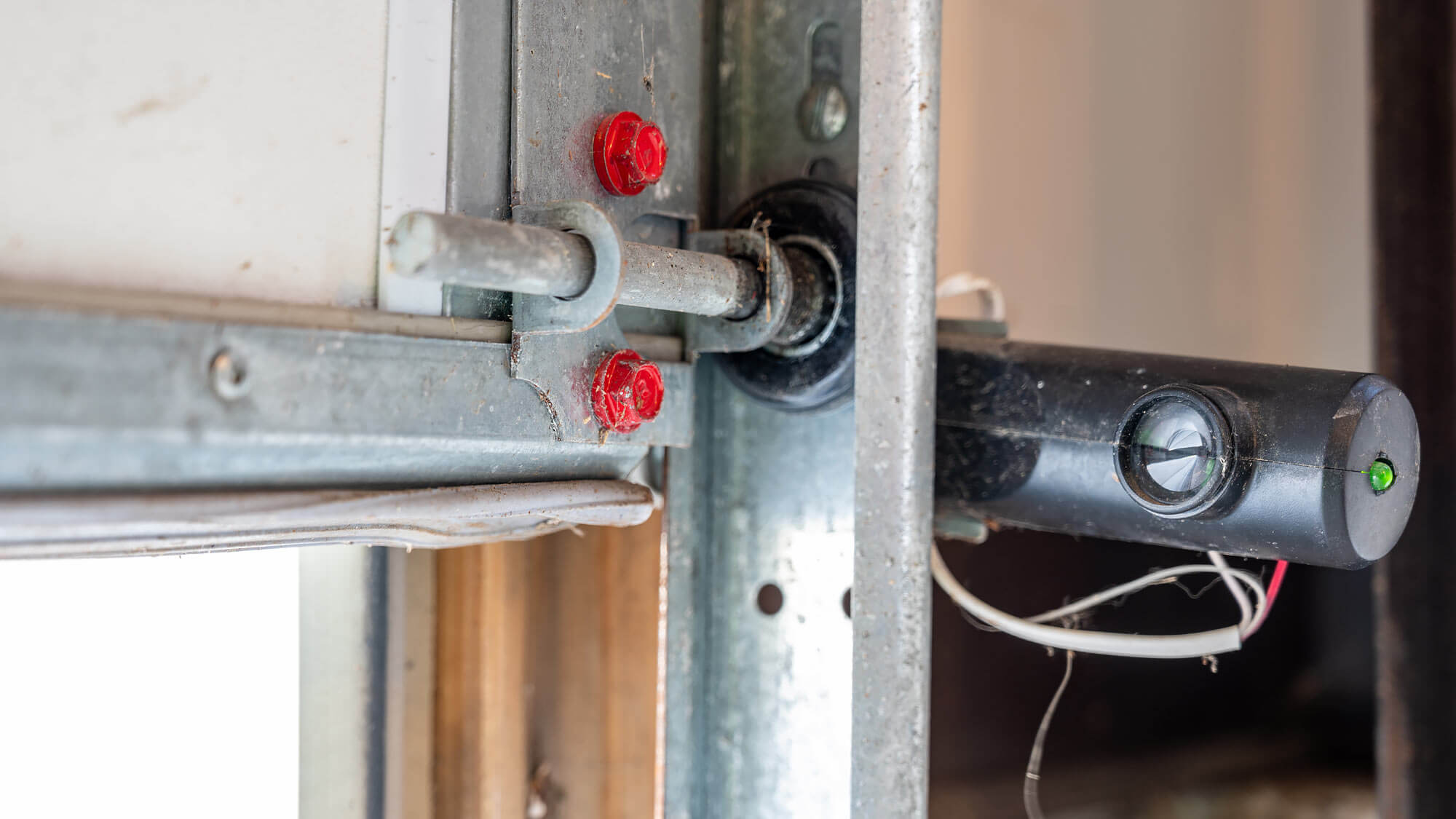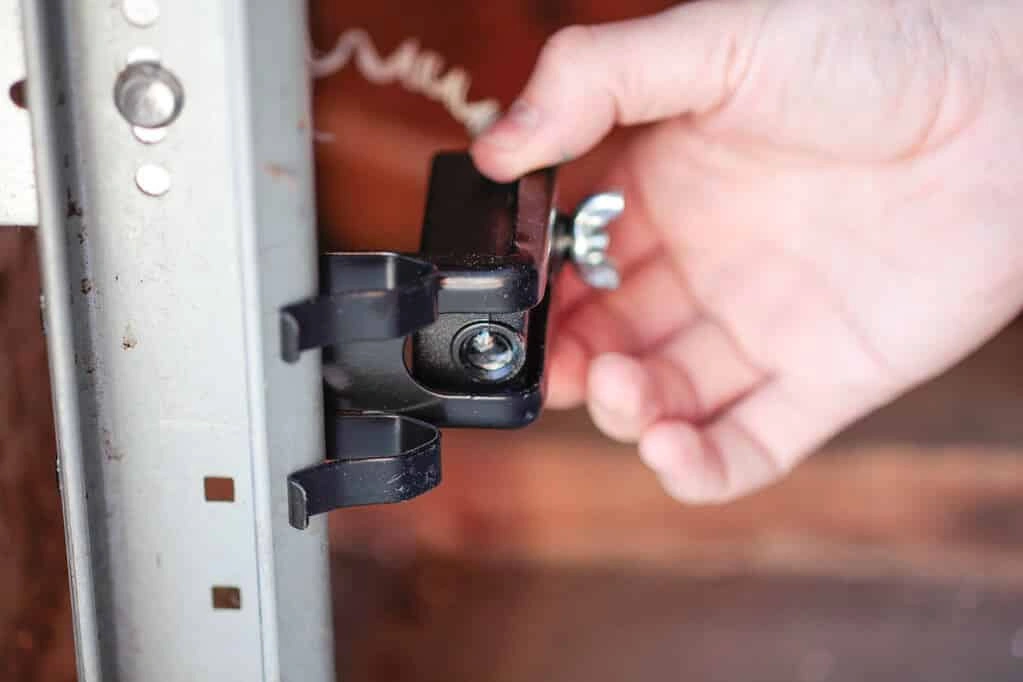A malfunctioning garage door that won’t close can be frustrating, especially when you need to secure your garage or protect your car.
Understanding why your garage door isn’t closing can help you troubleshoot and fix the issue quickly.
In this article, we’ll cover common causes and provide solutions to get your garage door working properly again.
Why won’t my garage door close properly?
If your garage door won’t close, it could be a misaligned sensor, a blocked track, or an issue with the opener. Check for obstructions or try resetting the system.
Key Takeaways
- Several factors can prevent a garage door from closing, such as sensor misalignment, obstructions, or issues with the opener.
- Regular maintenance and inspections can help prevent most of these issues.
- Some problems can be easily fixed by the homeowner, while others may require professional repair.
Common Reasons Why Your Garage Door Won’t Close
Garage doors can be complex systems with multiple components working together. If one of these components malfunctions, it can cause the door to fail to close properly.
Let’s explore some of the most common reasons why your garage door might not be closing.
1. Sensor Misalignment

Most modern garage doors are equipped with safety sensors that prevent the door from closing if there is an obstruction in its path.
These sensors are designed to protect people and pets from being trapped by the door. If these sensors become misaligned, the door may not close, even if there is nothing blocking the path.
How to Fix a Garage Door Sensor Alignment: Check the sensors on either side of the door to ensure they are properly aligned.
Clean the sensors to remove any dust or debris that might be interfering with the signal. If the alignment is off, gently adjust the sensors until they are aligned with one another.
If the issue persists, it may be necessary to replace the sensors.
2. Obstructions in the Path
Even a small object in the path of the garage door can prevent it from closing completely.
If something is obstructing the sensors or the door’s tracks, the door will reverse course to avoid damaging the item or causing harm.
How to Fix It: Examine the tracks and the area around the door for any obstructions, such as boxes, tools, or debris. Make sure nothing is blocking the door’s path.
If you find something, clear the area and test the door again.
3. Broken Springs
Garage door springs are responsible for helping lift and lower the door. If they become damaged or rusted, they might make an unpleasant squeaking noise as they stretch and contract — one of the common signs your garage door spring is broken.
If one or both of the springs break or become damaged, the door may have difficulty closing, or it may refuse to close altogether.
How to Fix It: Broken springs are a serious issue that requires immediate attention.
It’s not recommended to attempt to fix them yourself, as they are under a lot of tension and can be dangerous.
Contact a professional garage door technician to repair or replace the springs safely.
4. Issues with the Garage Door Opener
The garage door opener is responsible for powering the motor that opens and closes the door. If there is an issue with the opener, it can prevent the door from closing properly. In such cases, seeking garage door opener repair in South Barrington, IL is essential to restore proper functionality and ensure safe operation.
This could be due to a malfunctioning motor, faulty wiring, or an issue with the remote control.
How to Fix It: First, check to see if the opener is plugged in and the power source is functioning.
You can also test the remote control to make sure it’s working correctly. If the opener isn’t the issue and you’re dealing with physical damage, it’s worth learning how to repair garage door panels or considering a replacement.
It’s best to call a professional technician to assess the opener and fix any electrical issues.
5. Track Misalignment or Damage

The tracks that guide the garage door are crucial to its smooth operation.
If the tracks become misaligned or damaged, the door may have difficulty closing or may even become stuck halfway.
How to Fix It: Inspect the tracks for any bends, dents, or obstructions. If you notice any misalignment, carefully try to adjust the tracks back into position using a wrench.
If the tracks are severely damaged, you may need to replace them.
6. Weather Stripping Issues
The weather stripping at the bottom of your garage door helps keep out rain, wind, and debris.
If the weather stripping becomes worn out or damaged, it can cause the door to not close properly or leave gaps that can affect the door’s ability to seal. In such cases, a common garage door not closing gap fix is to replace the old weather stripping and ensure it’s properly aligned to create a tight seal.
How to Fix It: Check the weather stripping for signs of wear or damage. If it’s cracked, torn, or no longer sealing properly, replace it with a new strip.
This is a relatively easy fix that can improve the function of your garage door and provide better insulation.
Troubleshooting Your Garage Door Opener
If you’ve ruled out physical obstructions and alignment issues, the next step is to troubleshoot the garage door opener.
The opener is the heart of the system, and any problems with it can prevent the door from closing.
1. Check the Remote and Wall Switch
If your garage door isn’t closing, the problem could lie with the remote control or wall switch. Ensure that the remote is working and the batteries aren’t dead.
Sometimes the issue could be as simple as a dead battery.
How to Fix It: Try using the wall switch instead of the remote to close the door. If the door closes with the wall switch but not the remote, you may need to replace the remote’s batteries or troubleshoot the remote further.
2. Test the Wall Switch
The wall switch should be properly connected to the opener. If the switch is malfunctioning, it can prevent the door from closing.
You can check the switch by removing the cover and inspecting the wiring.
How to Fix It: If the wall switch appears to be faulty, consider replacing it. If you’re not familiar with electrical work, it’s best to call a professional to handle the replacement.
Frequently Asked Questions
1. Why is my garage door only closing halfway?
This could be due to an obstruction, sensor misalignment, or an issue with the door’s tracks. Check for debris and ensure the sensors are aligned correctly.
2. How do I know if the springs on my garage door are broken?
If you hear a loud noise when operating the door or the door appears unbalanced, the springs may be broken. It’s best to call a professional to inspect and replace them.
3. Can I fix my garage door opener myself?
It’s possible to troubleshoot minor issues, such as dead batteries in the remote, but for more complicated problems with the opener’s motor or wiring, it’s best to call a professional.
Conclusion
If your garage door isn’t closing, it could be caused by a variety of issues, from sensor misalignment and obstructions to broken springs or issues with the opener.
By understanding the potential causes and following the troubleshooting steps outlined in this article, you can often resolve the problem quickly.
However, if the issue persists or if you encounter more complex problems, it’s always best to consult a professional technician to ensure the door is repaired safely and efficiently. For reliable garage door repair in South Elgin, IL, local experts are available to handle everything from broken springs and cables to complete door replacements, ensuring your garage remains secure and fully functional.
Read More Blogs about Steel Roor for Garage

